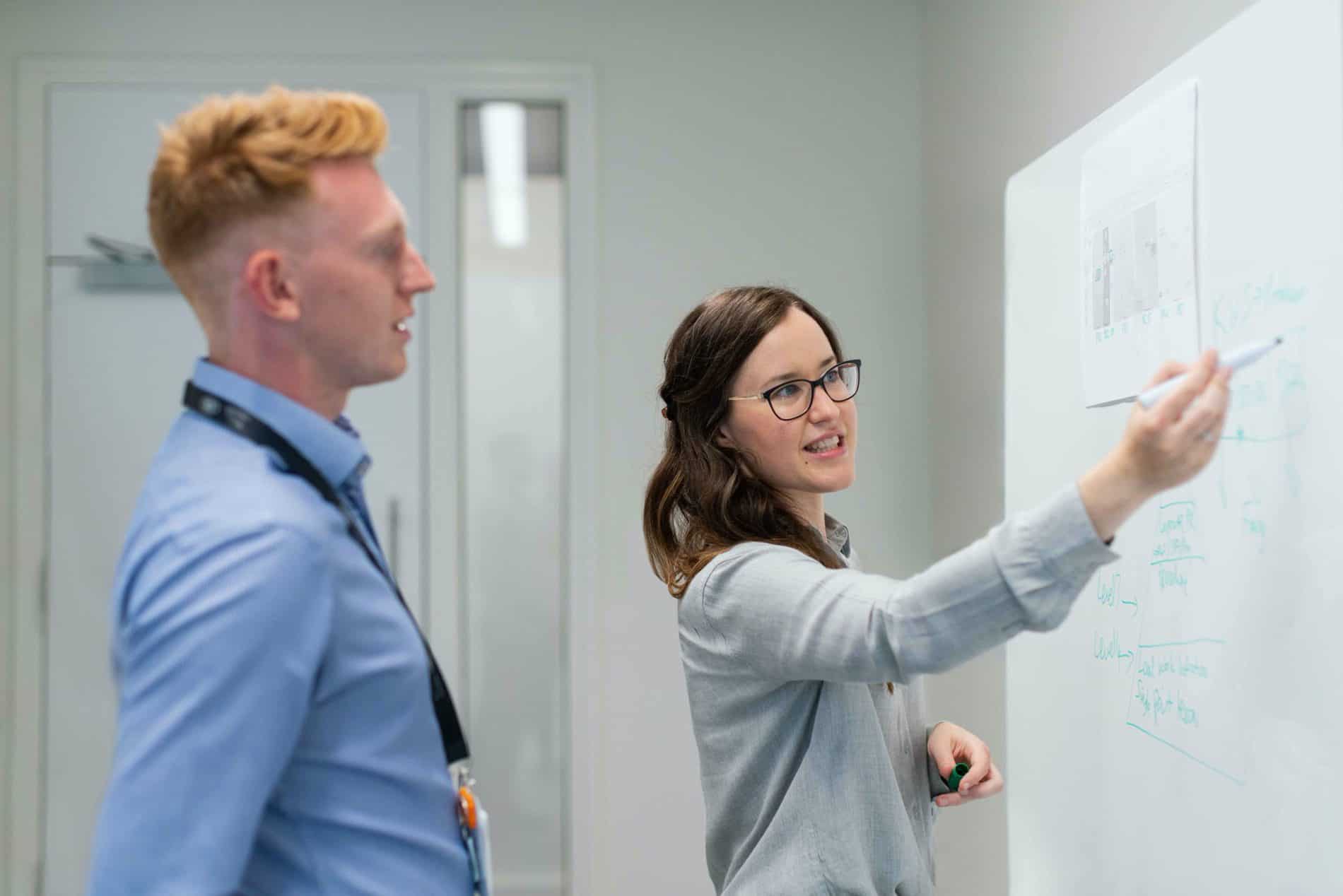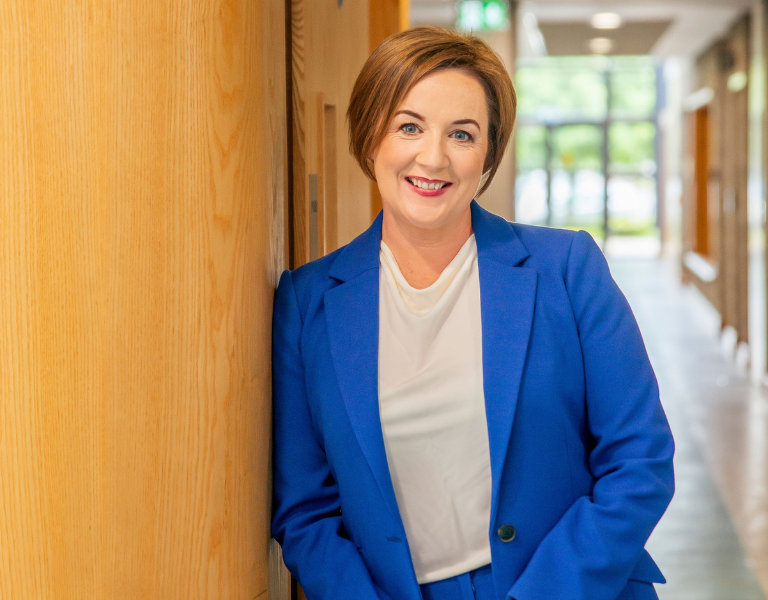Is your company growing faster than your cash flow? Do you need support getting investor-ready and pitching in front of a panel?
 We hosted a Business Growth Webinar with Conor Carmody, Investment Consultant at Dublin Business Innovation Centre (BIC) and he shared his knowledge on the Irish Startup landscape and the different funding opportunities for companies in Ireland.
We hosted a Business Growth Webinar with Conor Carmody, Investment Consultant at Dublin Business Innovation Centre (BIC) and he shared his knowledge on the Irish Startup landscape and the different funding opportunities for companies in Ireland.
BIC is a not-for-profit organisation that supports early stage companies to start, scale, grow and ultimately become export-led companies.
BICs typically operate as public-private partnerships, combining both government funding via Enterprise Ireland and private cash or similar funding opportunities.
There are 4 BICs around Ireland; Dublin BIC, Cork BIC, West BIC and South East BIC. These centres are part of European Business & Innovation Centre Network (EBN) so you will be connected the organisation that suits your needs.
In this blog, we’ll cover the following topics:
- Equity financing and the supports available
- The funding journey from pre-seed, seed and series funding
- Sources of funding
- What do investors look for?
- Where to go for funding?
- The investment process
What is equity finance?
Equity financing is a type of Startup investment that involves raising cash from an investor. This cash is usually in exchange for shares in the company.
There are different types of equity finance depending on what stage your company is at and therefore, it usually dictates what the funding can be used for. For instance, there is pre-seed, seed and series A/B/C funding rounds.
There are also different types of Startup investment such as accelerators, government startup support, venture capitalists and business angels.
Each type of investment may have a different agreement in place, for example, is the funder a silent investor or will they want a seat on your board? Do they need to see a clear exit strategy and how you’ll return their investment?
1) Investor ready preparation
This programme helps entrepreneurs answer the tough, fundamental questions about their business. Dublin BIC helps you articulate your story and prepare you to go in front of a panel of business angels and Venture Capitalists (VC).
With the help of a Dublin BIC consultant, you’ll figure out what value you and your business have, why you are doing business and why people will buy from you.
2) Access to finance
Dublin BIC is part of a wider network of organisations that support the funding of Irish companies.
For instance, it’s connected with Ireland’s largest network of business angels and syndicates, Halo Business Angel Network (HBAN), across the island of Ireland. Dublin BIC can connect you with Startup investment opportunities and help you pitch to them.
3) Incubation centre
- The Guinness Enterprise Centre (GEC) is managed by Dublin BIC and it’s a dynamic working space for ambitious, growth-orientated companies. Businesses pay rent to avail of this office space and start a business here.
- Space@DublinBIC is an enterprise centre for Dublin BIC clients and provides affordable office solutions so companies can attract talent, scale their business, access customers and become investor-ready from these locations.
4) Community and collaboration
- Furthr Festival – formerly Futurescope This is an event for innovators and innovation seekers. It aims to identify collaboration opportunities between start-ups, scale-ups, tech multinationals, innovative Irish enterprise, the research community and investors.
- Funding and Scaling Series. These are events with two entrepreneurs (one early-stage start-up and one later-stage scale-up) who have successfully secured investment to grow their business. There is an interactive discussion and the opportunity to network with investors, experts and other entrepreneurs.
Pre-seed
This is the concept stage, so the product/service is still developing and there may be a prototype or minimum viable product. The typical Startup investment at this stage is between €50,000 to €300,000.
This funding is usually used to validate a concept and support early cash flow.
Seed
At this stage, you have a business and you’re looking to scale and grow. For instance, if you have an innovative product/service, you may need to grow to beat competitors getting to the market. The typical investment at this stage is between €300,000 to €1 million.
A seed round fund should help achieve clear value-creating milestones to position the company for follow in investment at a higher value.
If you need support getting to this stage, talk to Dublin BIC about how to get investor ready. You can email them on startup@dublinbic.ie.
Series A, series B, series C, and so on
This is how you fund the growth in your company. This will be significant investment and it will allow you to grow faster than your revenue. The amount of investment will increase with each letter – i.e. series a, series b, series c, and so on.
- Series A. The typical investment at this stage is between €1.5 – €5 million and the funds are usually used to optimise and execute the marketing plan and refining the business model.
- Series B. Investment at this stage can range from €5 – €10+ million and usually used for significant hiring, stepping up operations, geographical scaling and more.

Sources of funding for Startups
Bootstrapping / funding prior to seed investment
In the beginning, business owners will always start by spending more cash than they bring in, and funders usually understand that.
Conor explains that investors are looking for confidence that you can hit certain proof points. For example, getting customers to pay you for your product/service gives investors’ confidence that you’re doing the right thing.
Examples of bootstrapping;
- Promoters’ sweat / sweat equity. The hours you’re putting in, for nothing.
- Promoters’ cash
- Consultancy work
- Friends and family
- Private investor(s) targeted through personal network
- Accelerators, crowdfunding, Competitive Start Fund, grants
- Customer revenue
Seed investment
When to look for seed funding?
Conor’s advice is to “raise investment when you can, not when you have to”.
Don’t be forced to seek external funding - you’re in a much stronger position when you choose when to introduce investors to your company.
Going for seed funding can long process so you should seek support from Dublin BIC.
A company will typically look for seed funding when they have a:
- Minimum viable product
- Robust plan and strategy that validates your idea
- Clear thought-process to the numbers. Conor explains that investors are aware entrepreneurs often provide aspirational figures, but you need to show you have a credible, scalable plan.
- Committed team. There needs to be a clear view of what the business can be in the future, do the numbers stack up and what confidence do you have?
What do investors look for?
Team
Do you have a committed, balanced team? What skills gaps are there? It’s important that you have an awareness that you may need to bring in additional support even though you may not need them on the first day.
Market
What’s your competitive advantage and can it be scaled? Do you have any proof of early validation?
Milestones
Have you spoken to customers? Has anyone paid you for your product/service or trailed it?
Cash burn rate
Lots of Startups fail just because they run out of cash. Investors need to know that you can accomplish what you set out to do in a specific, reasonable amount of time.
Follow-on investment requirement
What do you need to do once you’ve spent all the Startup investment? You need to have a clear thought-process around your business journey.
Investment case
This means proving your potential to return an investors’ funding. Conor refers to this as a “marriage with a plan to divorce”. In other words, you need to be comfortable with the idea that you may need to exit the company in order to return an investors’ funding.
Where to go for funding?
Places to start
- Local Enterprise Office – Free government grants, vouchers and advice, access to mentors and support network.
- New Frontiers – This is a three-phase programme, consisting of practical and interactive workshops, personalised one-to-one mentoring, financial support and co-working space.
High Potential Start Up
- Enterprise Ireland – Government grants, funds, and vouchers. Enterprise Ireland (EI) are usually silent investors and if you are an EI client they may match funding raised in a seed round.
Seed Funding

- Halo Business Angel Network (HBAN) is managed by Dublin BIC. HBAN is an all-Ireland umbrella ground responsible for the promotion of business angel investment and the creation of business angel syndicates. Dublin BIC will help you prepare for a pitch with one of HBAN’s angel groups.
- Venture Capital – This is funding provided by full-time, professional firms (venture capitalists) who invest in ambitious, fast-growing companies. Enterprise Ireland can support companies with contact details and specific areas of interest for the major Irish venture capital companies.
Seed/Venture Capital/Business Angel – Investment process
The investment process can range from 6 to 9 months and this is a typical process:
- Initial contact – business plan / presentation
- Evaluation and initial due diligence
- Agree term sheet – set out the key terms and conditions of the investment
- Further due diligence
- Legal – Shareholders’ Agreement, etc
- Complete investment

Key takeaway – where to start?
“Get a good advisor – someone that can help you navigate this journey!”
Consider what business stage you are at – do you have a company investors would be interested in?
Depending on where you are on your journey, you could raise pre-seed, seed or series funding from a range of different funders.
Start by visiting the Dublin BIC website and investigate one of their pillar programmes.
If you need more help, email Conor Carmody startup@dublinbic.ie.



